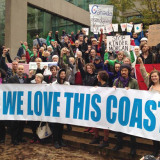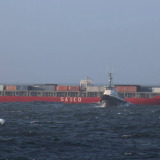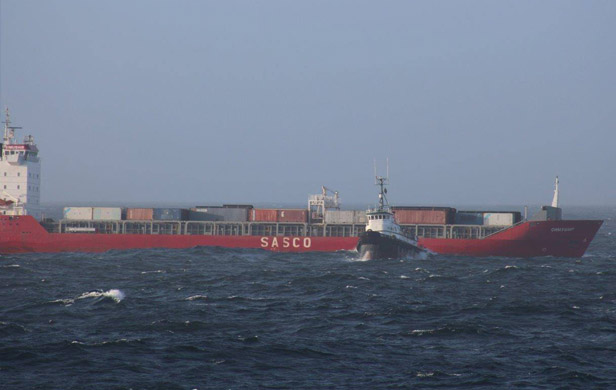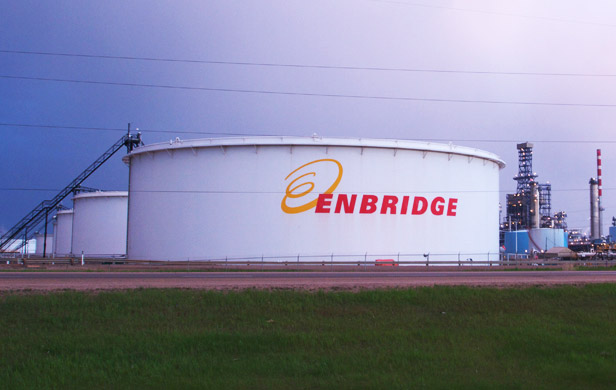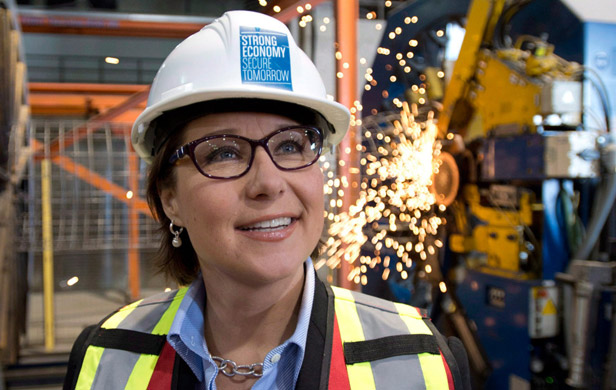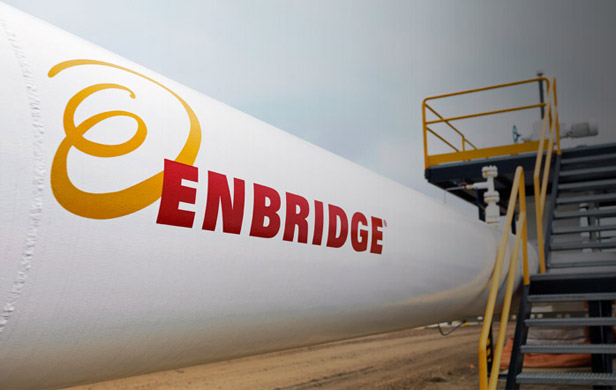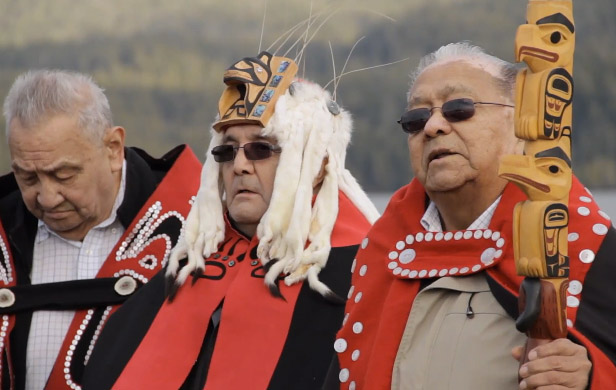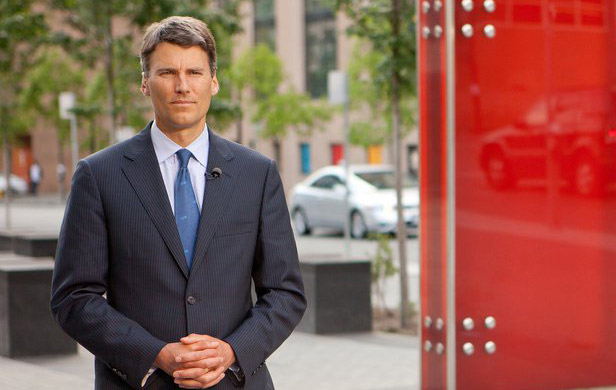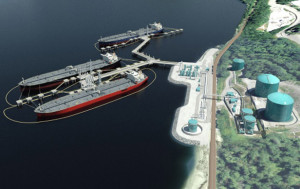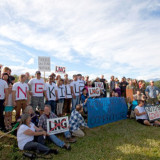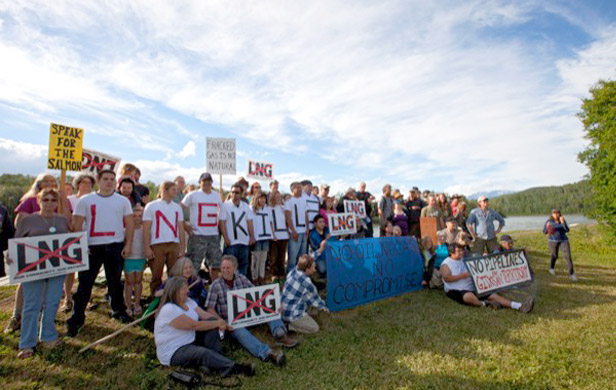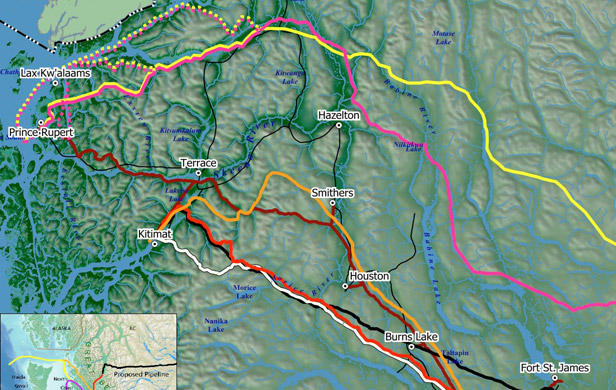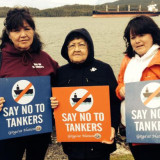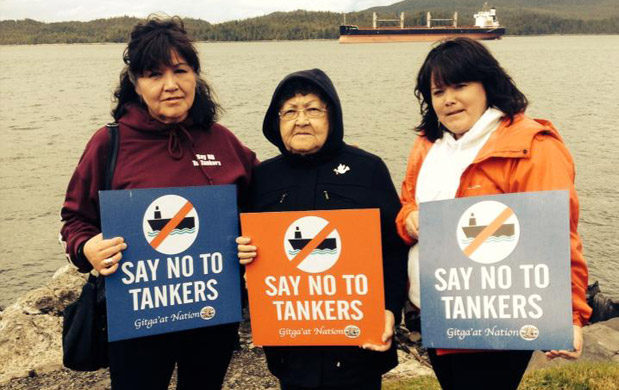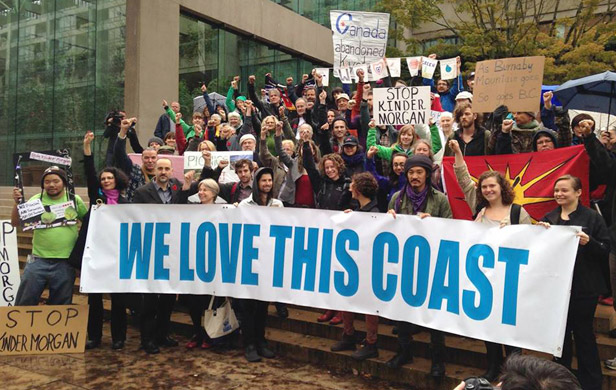
Houston-based pipeline giant Kinder Morgan may obtain an injunction from the BC Supreme Court today to remove protestors from a Burnaby Mountain blockade of the company’s exploratory work. In all likelihood, it will also secure a positive verdict from the National Energy Board at the end of its hearings into the proposed Trans Mountain pipeline expansion – and Harper Cabinet approval thereafter.
But these will be pyrrhic victories the company loses its social licence in the process. And that’s precisely the way things appear headed for the $90 Billion Houston-based energy titan.
Corrigan-vs.-Goliath
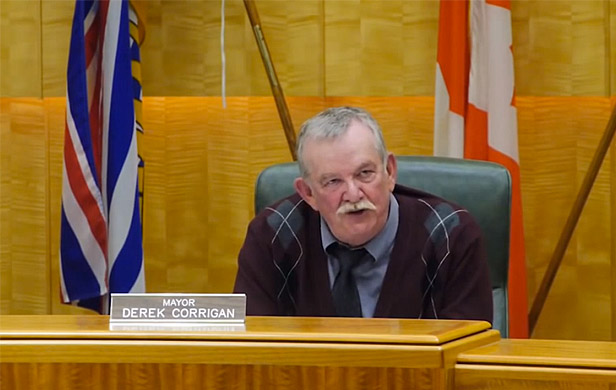
The Burnaby Mountain blockade was catalyzed by the strong stance taken by Burnaby Mayor Derek Corrigan against Kinder Morgan’s plans to build expand its Burrard Inlet shipping terminal and massively expand tanker traffic to over 400 ships a year through south coast waters.
Corrigan has made no secret about his enmity for the project altogether, but it was at Burnaby Mountain that made his stand.
When the company announced a proposed change to its pipeline route earlier this year, involving tunnelling under Burnaby Mountain, Corrigan recognized a golden opportunity. Invoking whatever municipal powers he had at his disposal, the mayor sought to block access for Kinder Morgan to the mountain – arguing that its survey work would negatively impact protected wilderness areas.
What resulted has been a protracted, complex legal battle, waged in the BC courts and before the federal energy regulator conducting the hearing into the pipeline. While Justice Brenda Brown denied the city’s injunction application to keep the company off the mountain, the NEB surprisingly went the other way, refusing to take the company’s side and override municipal by-laws.
Enter the citizens
Into this impasse strode a group of citizens, who in September constructed a camp at the base of the mountain, along Centennial Way, physically blockading the company’s work. Over the past week, including further hearings today, Kinder Morgan has been seeking an injunction which would give it the power to have protestors removed by police.
Knowing the way these hearings usually go, if not today, then sometime very soon Kinder Morgan will likely get what it’s seeking. But as the old saying goes, “Be careful what you wish for.”
Pipeline Jujitsu
What began with Corrigan’s David-vs.-Goliath battle is starting to look like a shrewd jujistu move, using his opponent’s strength (it is the largest energy transmission company in North America) against it. And now that ordinary citizens have taken up the torch – some still haunted by the memory of the company’s 2007 spill that covered their North Burnaby neighbourhood in diluted tar sands bitumen – Kinder Morgan looks more and more like a ham-fisted ogre with each passing court date.
List of critics, offences grows
The company is increasingly riling citizens and offending First Nations – who remain steadfastly opposed. But it’s not just grassroots citizens and indigenous groups. It’s prominent politicians, academics, economists, and other public figures who are increasingly lining up against the company. Here are just a few poignant examples:
- Questions from the company during NEB hearings as to First Nations food fishing have sparked a viral facebook page, with thousands of pictures from around the province displaying how aboriginal people value wild salmon
- The Burnaby Mountain protestors include prominent academics like SFU Biochemistry professor Lynne Quarmby, who noted in a recent press release that over 80 groups from around the world are now supporting their legal battle. “I don’t think Kinder Morgan wants you to hear what I have to say – and I think that is why they are trying to silence me,” Quarmby told media outside the court house last week.
- Quambry is joined by SFU Professor Stephen Collis, who spoke out publicly against a 1000-page legal document dropped on him by the company last week, threatening $5.6 million in damages for “trespassing” in the public Burnaby Mountain park the company is trying to gain access to
- Heavy-hitting aboriginal leaders like Grand Chief Stewart of Union of BC Indian Chiefs have indicated their full support for the Burnaby protests and local First Nations opposition to the project, declaring, “We stand in absolute solidarity with individuals, groups and First Nations that are standing in public opposition to these ill-conceived, uninvited, unwanted heavy oil pipeline proposals in the province of British Columbia”.
- The NEB process itself is under attack as well. Former BC Hydro head Mark Eliesen recently dropped out of the pipeline hearings via a scathing letter to the regulator, calling the process a “farce”
- This follows a long list of grievances against the hearings over the exclusion of 80% of applicants, the lack of any opportunity for cross-examination from interveners, and a slew of issues with the application process itself – highlighted by people like local NDP MP Kennedy Stewart
- Corrigan is joined by Vancouver Mayor Gregor Robertson – who seems destined for a fresh mandate come Nov. 15 – in steadfast opposition to the project. Though on paper municipal governments lack much political power to block large-scale energy projects, it would be a serious mistake to underestimate the influence of these two cities and powerful mayors over the project.
- Even the Clark Government has expressed concern at Kinder Morgan’s evasiveness toward the province’s questions about the project. The company couldn’t find a friendlier provincial government if it tried, so pissing off this bunch would seem counter-productive.
Much of the above has transpired since this independent poll in July, which found that 70% of Burnaby citizens supported their mayor and council’s tough stance against Kinder Morgan.
Clearly, this Texas-based company has a few things to learn about doing business in BC. If it continues on this path, it may well win a few battles but wind up losing the war.
